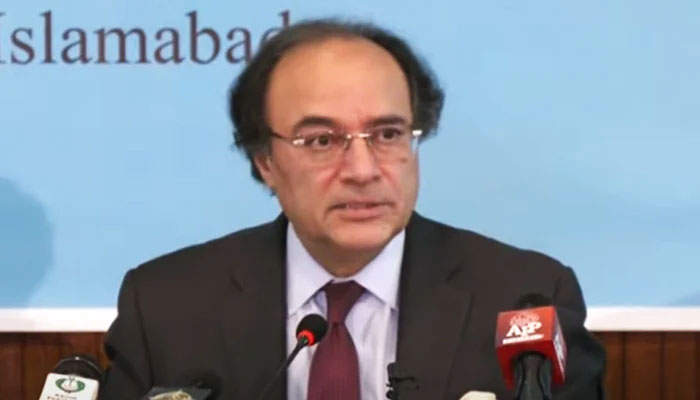Economic Survey 2023-24
After previous fiscal year’s contraction of 0.21 per cent, GDP growth bounced back to 2.38 per cent
The Economic Survey of Pakistan for FY2023-2024, unveiled on Tuesday by Finance Minister Muhammad Aurangzeb, has its optimistic moments, showing progress in some economic areas amidst formidable challenges and moderate recovery characterized by GDP growth and improvements in key sectors. One of which would be the successful conclusion of the Stand-by Arrangement with the IMF, signifying a milestone in Pakistan’s journey towards economic stabilization. After the previous fiscal year’s contraction of 0.21 per cent, GDP growth bounced back to a more respectable 2.38 per cent. This moderate expansion was anchored by a strong showing in the agricultural sector, which saw double-digit growth in the output of most major crops. Inflation eased to around 24.5 per cent, down from almost 30 per cent in the preceding fiscal, with the rupee appreciating by almost 3.0 per cent during the first eleven months of FY2023-24. However, despite the modest improvement in major indicators, one cannot say that the economy is out of the woods just yet. The industrial and service sectors both grew by a sluggish 1.21 per cent, with the large-scale manufacturing sector hampered by the impacts of the interest rate regime and the energy equation. At the media talk on Tuesday, the finance minister highlighted how agriculture was the ‘saviour’ and the growth picture would have indeed looked much less optimistic without the bumper crops.
Meanwhile, the survey tells a story of the fiscal deficit remaining stuck at 3.7 per cent of GDP despite an overall improvement in the current account deficit $3.9 billion last year to $0.2 billion in July-April FY2023-24 with over 10 per cent growth in exports and a 5.3 per cent drop in imports. More worryingly, the investment-to-GDP ratio declined from 14.13 per cent of GDP last year to 13.14 per cent of GDP in FY2023-24. Stronger growth in investment will be crucial to turning the economy around on a long-term basis and turning this ratio around will be one of the government’s most crucial tasks in the upcoming fiscal year. And while total revenues grew by 41 per cent compared to the 18.1 per cent observed last year, much of that has been primarily attributed to a sharp rise in non-tax revenues, which grew by 90.7 per cent while tax revenues grew by 29.3 per cent. Improvements in the government’s tax collection regime thus remain imperative.
Looking ahead, the government has rightly identified high-potential sectors such as IT, SMEs, tourism, exports, and agriculture as key drivers of economic expansion. By prioritizing these sectors, Pakistan aims to enhance its balance of payments position and create avenues for employment generation and wealth creation. The government will also be looking to attract more foreign investment and facilitate overseas Pakistanis in leveraging home remittances so as to harness external resources for domestic development. Such initiatives, coupled with fiscal discipline and reforms at the Federal Board of Revenue, are pivotal in ensuring financial self-sustainability and fostering an environment conducive to economic growth. The finance minister has rightly emphasized the pivotal role of taxation in sustaining national economies. Pakistan’s strengthened external position, marked by increased import cover and stabilized exchange rates, will hopefully help the country navigate future economic challenges with confidence. The finance minister’s roadmap for the upcoming fiscal year prioritizes continuity in policy implementation while pursuing digitalization initiatives to modernize tax collection systems. As Pakistan braces for today’s Budget FY2024-2025, it will need ambitious fiscal targets and prudent fiscal management to secure the nation’s economic future.
-
 Hilary Duff Opens Up About Marriage Fears Despite Strong Bond With Matthew Koma
Hilary Duff Opens Up About Marriage Fears Despite Strong Bond With Matthew Koma -
 ‘Grey’s Anatomy’ Star Eric Dane Breathes His Last At 53
‘Grey’s Anatomy’ Star Eric Dane Breathes His Last At 53 -
 Donald Trump Breaks Silence On Andrew’s Arrest: ‘It’s A Shame’
Donald Trump Breaks Silence On Andrew’s Arrest: ‘It’s A Shame’ -
 DJ Khaled Shares Weight Loss Progress
DJ Khaled Shares Weight Loss Progress -
 Jennifer Aniston And Jim Curtis Share How They Handle Relationship Conflicts
Jennifer Aniston And Jim Curtis Share How They Handle Relationship Conflicts -
 Shamed Andrew Real Birthday Plans As Cops Showed Up At Door
Shamed Andrew Real Birthday Plans As Cops Showed Up At Door -
 Pete Davidson’s Girlfriend Elsie Hewitt Says 'everything Hurts' After Sudden Medical Emergency
Pete Davidson’s Girlfriend Elsie Hewitt Says 'everything Hurts' After Sudden Medical Emergency -
 Princess Beatrice 17 Holidays Per Year Exposed Amid Andrew Arrest
Princess Beatrice 17 Holidays Per Year Exposed Amid Andrew Arrest -
 Who Is 'Queen Of Woke'? UK First Female Civil Head
Who Is 'Queen Of Woke'? UK First Female Civil Head -
 Dwayne Johnson Confesses What Secretly Scares Him More Than Fame
Dwayne Johnson Confesses What Secretly Scares Him More Than Fame -
 Elizabeth Hurley's Son Damian Breaks Silence On Mom’s Romance With Billy Ray Cyrus
Elizabeth Hurley's Son Damian Breaks Silence On Mom’s Romance With Billy Ray Cyrus -
 Shamed Andrew Should Be Happy ‘he Is Only In For Sharing Information’
Shamed Andrew Should Be Happy ‘he Is Only In For Sharing Information’ -
 Daniel Radcliffe Wants Son To See Him As Just Dad, Not Harry Potter
Daniel Radcliffe Wants Son To See Him As Just Dad, Not Harry Potter -
 Apple Sued Over 'child Sexual Abuse' Material Stored Or Shared On ICloud
Apple Sued Over 'child Sexual Abuse' Material Stored Or Shared On ICloud -
 Nancy Guthrie Kidnapped With 'blessings' Of Drug Cartels
Nancy Guthrie Kidnapped With 'blessings' Of Drug Cartels -
 Hailey Bieber Reveals Justin Bieber's Hit Song Baby Jack Is Already Singing
Hailey Bieber Reveals Justin Bieber's Hit Song Baby Jack Is Already Singing




